Pointing guns at black marchers made them famous. What happened next?
The McCloskeys became Maga idols when they trained weapons on a Black Lives Matter protest passing their Missouri mansion. Now they claim the US is a dictatorship.
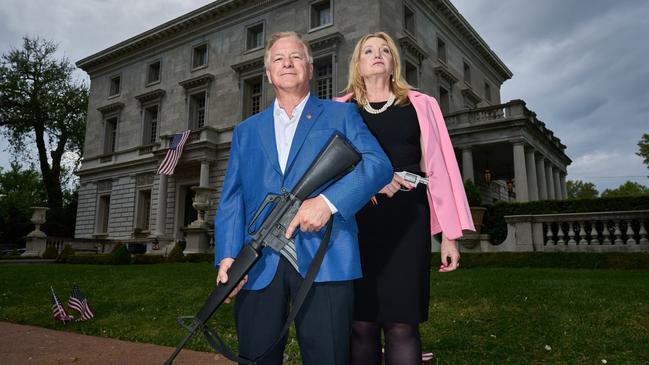
When Mark and Patty McCloskey meet their fans, they hand out photographs of themselves standing, armed, on the steps of their St Louis mansion in 2020, staring down a group of Black Lives Matter protesters. Patty, barefoot and wild-haired, brandishes a tiny pistol; Mark, in a pink polo shirt, holds an AR-15 assault rifle.
The photograph is captioned “Patty and Mark McCloskey vs the Mob”. Whether there was indeed a dangerous mob outside their marble-fronted home that day, or simply a group of peaceful protesters passing by on their way to demonstrate outside the mayor’s house, has divided Americans ever since.
What is indisputable is that, four years on, the McCloskeys, both personal injury lawyers in their sixties, have become celebrities in Donald Trump’s Maga – Make America great again – movement, travelling across the country to speak at Republican gatherings and campaign events, and doing everything they can to get the man they think will save the country elected in November’s presidential elections. They see themselves, and Trump, as victims of a judicial system weaponised by the Democrats.
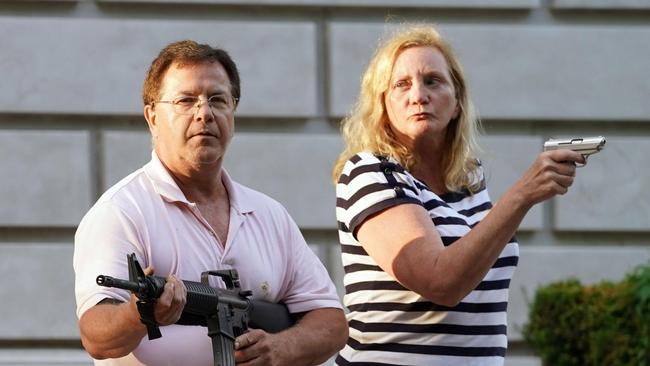
In the McCloskeys’ world, the US is ruled by a far-left totalitarian regime run by the president, Joe Biden, who stole the 2020 election from Trump, the rightful winner. The repeated court appearances of the former president, most recently last week in New York, are “no different than Joseph Stalin, doing show trials and having people arrested”, the couple believe, and the only protection right-thinking Americans like them can still rely on is the Second Amendment, which guarantees the “right of the people to keep and bear arms”.
“Right now we’ve got a system where the only unforgivable crime in America is standing up against the left,” said Mark, 67, speaking at the couple’s home, where they have reinforced the walnut doors with bulletproof glass and installed security cameras.
“If you’ve got the guts to raise your head up and say something, you get arrested.” Then you get tried “in front of a jury of people that hate you, not because of anything you actually did, but because of your political opinions.”
He and Patty, 65, take comfort, however, from the thought “that the government knows that they can’t take away all of our rights without taking away our guns first. And if they attempt to take away our guns by force of arms, it’ll result in civil war.”
It is even worse across the Atlantic, the McCloskeys have heard. “You guys, it’s a crime to have political opinions in England,” Mark said. “I mean, you guys live under a more totalitarian system than we do.”
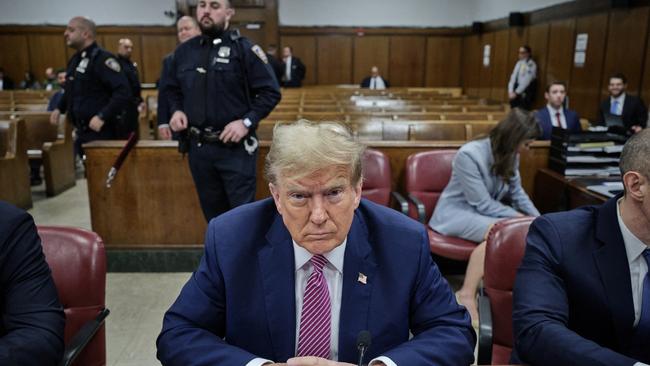
Seven months ahead of the election, Trump and his followers increasingly paint themselves as brave victims of political persecution: freedom fighters standing up for American values.
At his rallies, Trump opens to the strains of the “J6 prison choir”, a group of people imprisoned after storming the US Capitol building on January 6, 2020, singing the national anthem from their cells. The former president has called himself a “political dissident”. “They’re not coming after me,” Trump told his supporters this year. “They’re coming after you, and I’m just standing in their way.”
Last week he sat through jury selection in a Manhattan courthouse before his criminal trial for allegedly falsifying business records to cover up a sex scandal. Trump claims the proceedings are evidence of a shadowy conspiracy to keep him out of office.
The McCloskeys agree. They think the courts have been weaponised against them for political reasons too, even though they both pleaded guilty to minor firearms offences in 2020 and the judge – a “very nice guy” they have known for 35 years – fined Mark only $US750 ($1170).
When the judge read the charge in court and asked whether Mark purposely placed at least one other person in imminent fear of bodily injury, he responded in the affirmative.
“Hell yes, I did,” Mark recalled last week. “That’s what the guns were for, right? I’d do it again.”
They were pardoned by Mike Parson, the Republican governor of Missouri, a few weeks after their trial, and are hoping to have the matter expunged from their records. Their daughter, who has moved away from St Louis, doesn’t tell people she is related to them.
The McCloskeys bought the house they swore they’d die to protect in 1988 for about $US600,000.
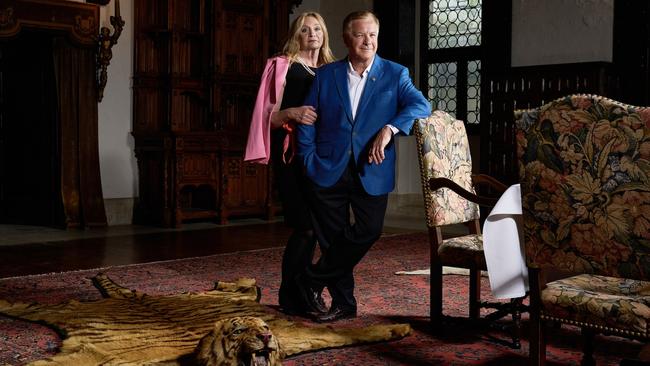
Built in 1909, it has 56 rooms, a medieval-themed ballroom (with a tiger skin on the floor), a 19th-century copy of one of Louis XIV’s commodes, two of Marie Antoinette’s urns and a small mirrored box that once belonged to Katharine Hepburn. There are Buckingham Palace-branded soaps in the downstairs loo.
What happened outside the house on June 28, 2020 remains disputed. Protests had been sweeping the US for almost a month after a black man, George Floyd, was killed by a white police officer in Minneapolis. Late that afternoon, a crowd of Black Lives Matter protesters marched through an entry gate to the McCloskeys’ private road – past the “no trespassing” sign – and started to walk past the house. The McCloskeys say they believed they were at imminent risk of losing their lives.
Videos show the couple standing on their lawn arguing with a handful of protesters on the pavement, none of whom are visibly armed, as the rest of the crowd files past. Patty points a gun (which she later said wasn’t loaded) directly at demonstrators. The house is behind her.
“They wanted to burn it down,” said Patty. “The modern world wants to burn anything with history now.”
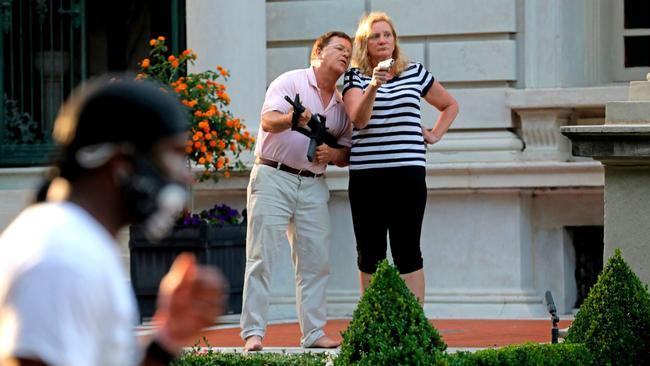
The Rev Darryl Gregory Gray, 69, a civil rights activist and former soldier who was one of the organisers of the protest, said allegations that demonstrators were armed and trying to storm the house were complete nonsense.
“At no time did anyone go on to the property of the McCloskeys. How do I know? I was standing there from the time people walked in the gate until we got the last person past the McCloskey household,” he said.
Four years on, he is philosophical: “My grandma used to say it takes all kinds of people to make the world,” he said.
The McCloskeys, meanwhile, perceive a divine purpose in these events.
“God came knocking on our door disguised as an angry mob,” said Mark. “It gave us an opportunity to have a voice that we did not have previously. And you know, when God comes knocking, you’ve got to answer the call, and that’s what we’ve been doing.”
The Sunday Times

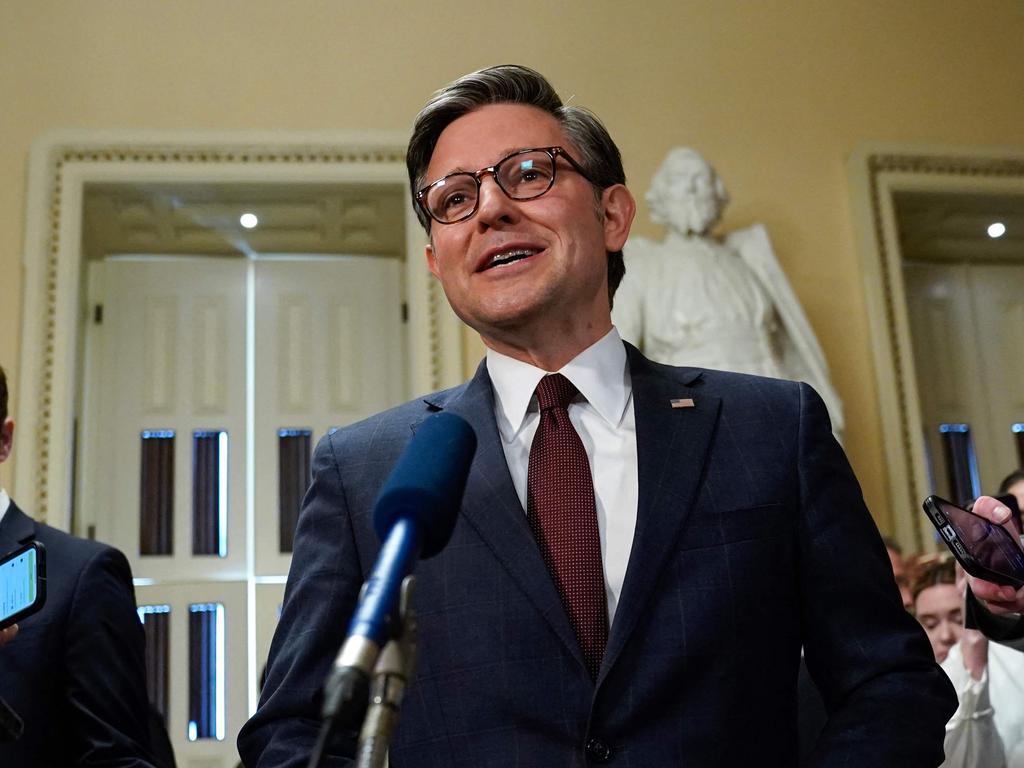
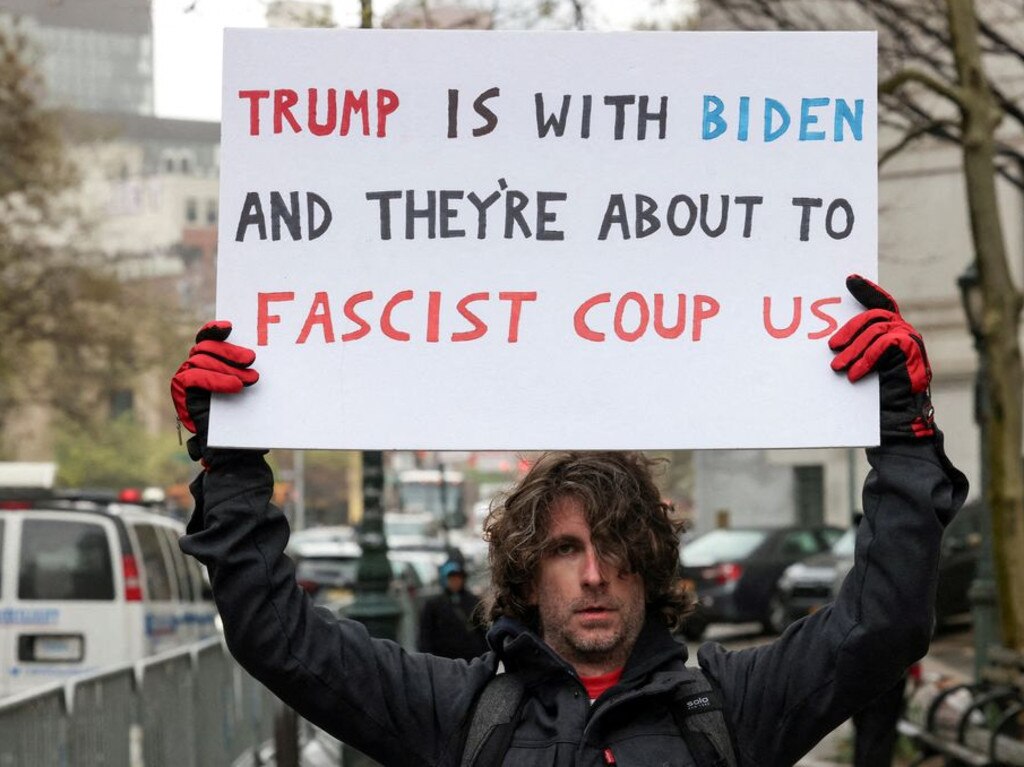
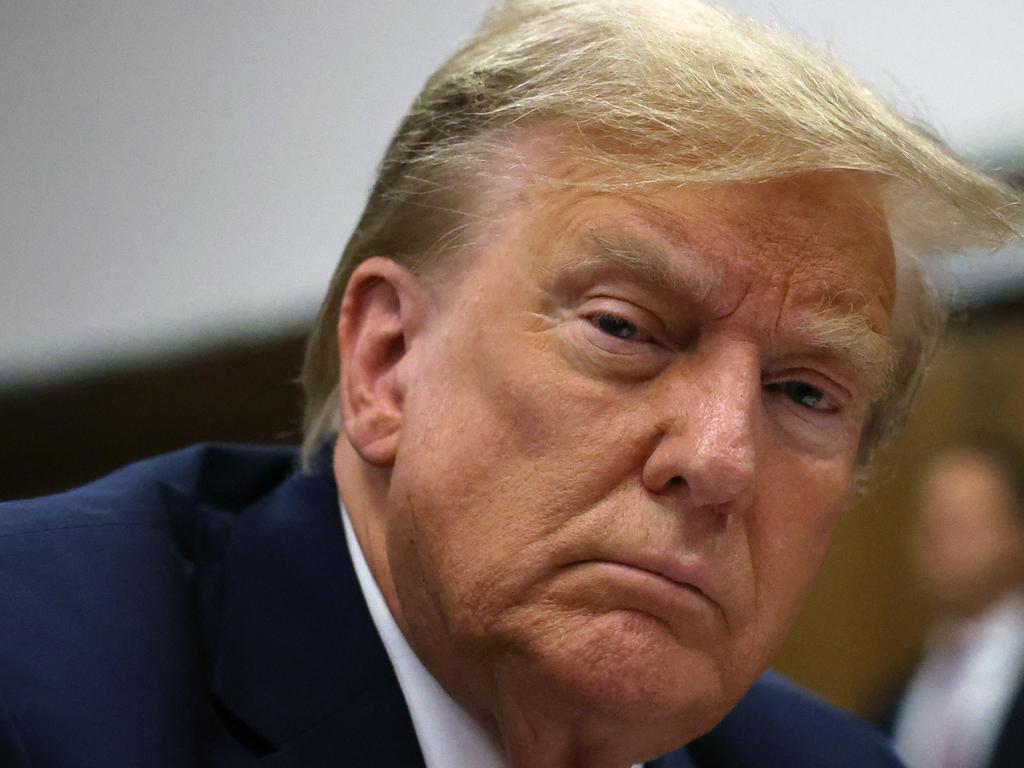


To join the conversation, please log in. Don't have an account? Register
Join the conversation, you are commenting as Logout